Beware if you head to the shops or go out for a meal, or are in any way involved with food or drinks. You will encounter a greenwash and you might not realise before reaching for the cutlery.
Especially when folk are demanding better food and beverages. In 2024, 92% of buyers say that sustainability is important when choosing a food brand, and 80% are willing to pay more for sustainably produced or sourced goods (PwC 2024 Voice of the Consumer Survey). A 2024 UK study found that 73% of people believe adopting a more sustainable way of eating is now urgent.
The flip side is that the unscrupulous are finding ways to exploit diners’ best intentions.
That’s where Akepa can help. Let’s take a closer look at greenwashing in the food industry and how to spot it.
Greenwashing in food & hospitality: 8 red flags
First of all let’s take a look at some examples of what greenwashing in food & hospitality can look like.
Eco-style, insipid reality
Imagine going out for brunch. That alluring restaurant with vegan options and earthy fittings may communicate wholesome vibes but that doesn’t equal substance.
As an example, near Akepa there is a place that promotes grand statements like “healthier people living in peace on a more sustainable planet”. Yet, when asking questions inside we discovered that hardly any of the produce used is organic, meaning free from harmful pesticides; ingredients are often imported, rather than locally sourced, and there’s no clear strategy for food waste or circularity. In the end, what ends up on the plate is not so different from what comes out of an ordinary kitchen serving averagely healthy food.
That doesn’t mean the establishment is evil but the angelic green messaging isn’t merited. Wholesome aesthetics should be backed by details and if they’re not there – on the menus or otherwise – the place is probably not on a real sustainable mission; it’s just targeting rising trends.
So what details to look for? Local ingredients, organic produce, certifications, circular processes, and a visible commitment to reducing food waste.
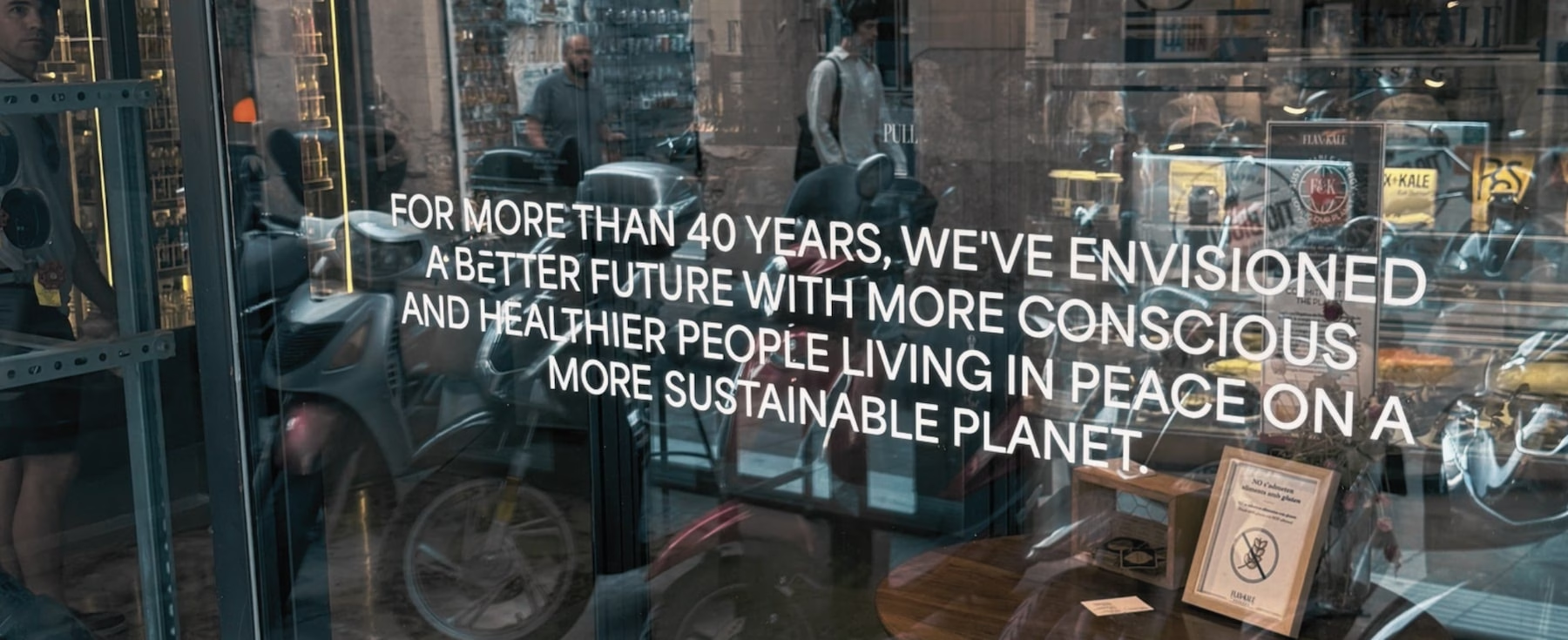
Carbon neutral claims
“Carbon neutral” products sound kinder on the planet!
But sadly these claims are almost always vague, heavily offset-based, or backed by pie-in-the-sky tree-planting. Unless paired with fundamental cuts to emissions, these promises are just marketing. This is why ‘carbon neutral’ is becoming a regrettable term that many brands are ditching.
One egregious example from the food industry is Brewdog’s claims to be ‘carbon negative’, explained in part by a tree-planting project in the Scottish Highlands that was recently abandoned after 250,000 trees allegedly died due to drought. The company has also backtracked on other sustainability initiatives and consequently had their B Corp status rescinded.
Don’t be taken in. If you see ‘carbon neutral’ or, worse, ‘carbon negative’ – be skeptical.
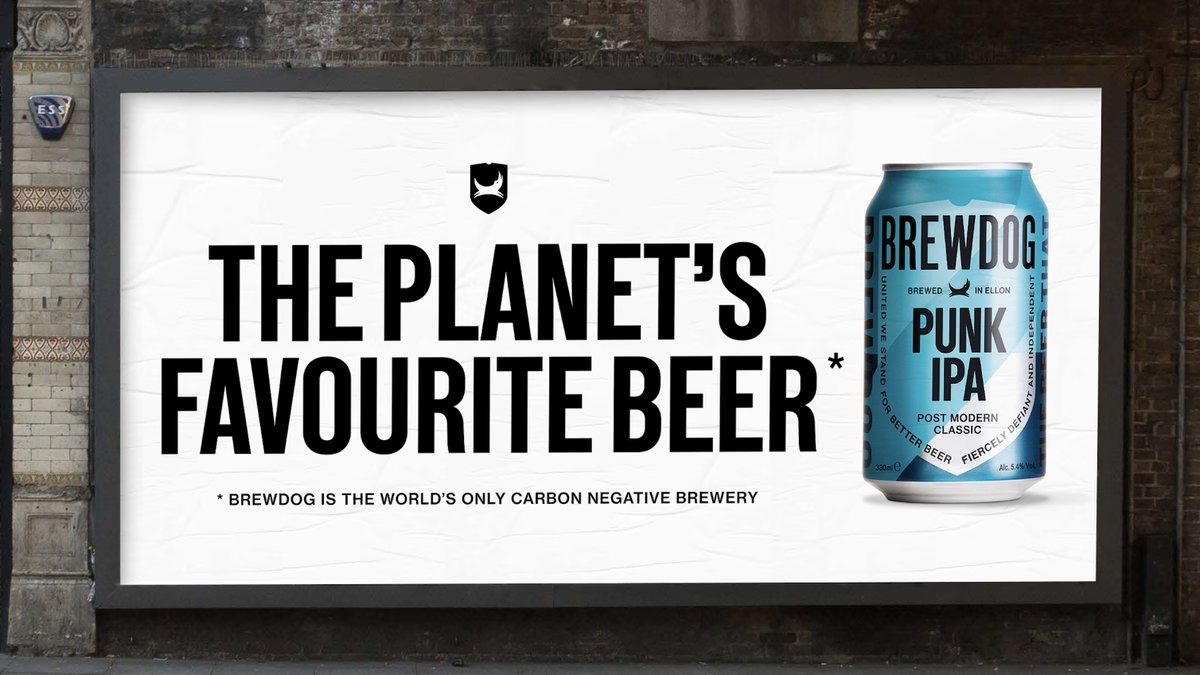
Mysterious ecobabble
The food industry is more susceptible than most to vague, sometimes amusing, product descriptions. Terms with no legal validity like ‘100% natural’, ‘bio’, ‘ ‘farm fresh’, ‘eco’, ‘climate friendly’, ‘farm to table’ and other impressive gibberish like ‘captain’s catch’ are no proof of anything at all.
Or, rather, it can be proof of greenwashing. Reputable businesses back claims with certifications from credible bodies, like EU Organic and the Soil Association. Not eco-sounding nonsense. If there’s no third-party validation, take the marketing with a pinch of salt.
Single-use plastic everywhere
The presence of single-use plastic is a major red flag. If you see this trashy stuff being used in a food product or in a restaurant, or when out fetching a flat white, then it’s a bad sign. But how to spot it? Look for plastic that’s very flimsy and either lacking a recycling symbol or carrying one that’s higher than the number 2.
Another related red flag is pointlessly mixed packaging, such as bakery bags seemingly designed to give croissants and other breads stunning panoramic views of their surroundings. Please stop.
“Recyclable” instead of “recycled”
Beware claims that packaging is “100% recyclable.” While the plastic material itself may be technically recyclable, this is often a hidden trade-off that ignores the reality of the recycling infrastructure. Only a small percentage of plastic worldwide actually gets recycled (some estimates put it as low as 9%), and many local facilities cannot process certain plastics (like the infamous Keurig K-Cups). A product that uses virgin plastic is essentially unsustainable, regardless of its “recyclable” label.
Broad “biodegradable” and “compostable” claims
These terms can be highly evasive. “Biodegradable” is largely meaningless, as everything will eventually biodegrade – but often over hundreds of years, and while doing so can still break down into harmful microplastics. “Compostable” packaging is better but many items labelled as such require high-heat industrial composting facilities to break down, which are rare. If a package says “compostable” but gives no clear instructions on how to go about the disposal, or if it will simply end up in a landfill, it could be a form of greenwashing. In fact, earlier this year Lavazza was banned from using the term ‘compostable eco caps’ on its coffee capsules by a UK court, for this very reason.
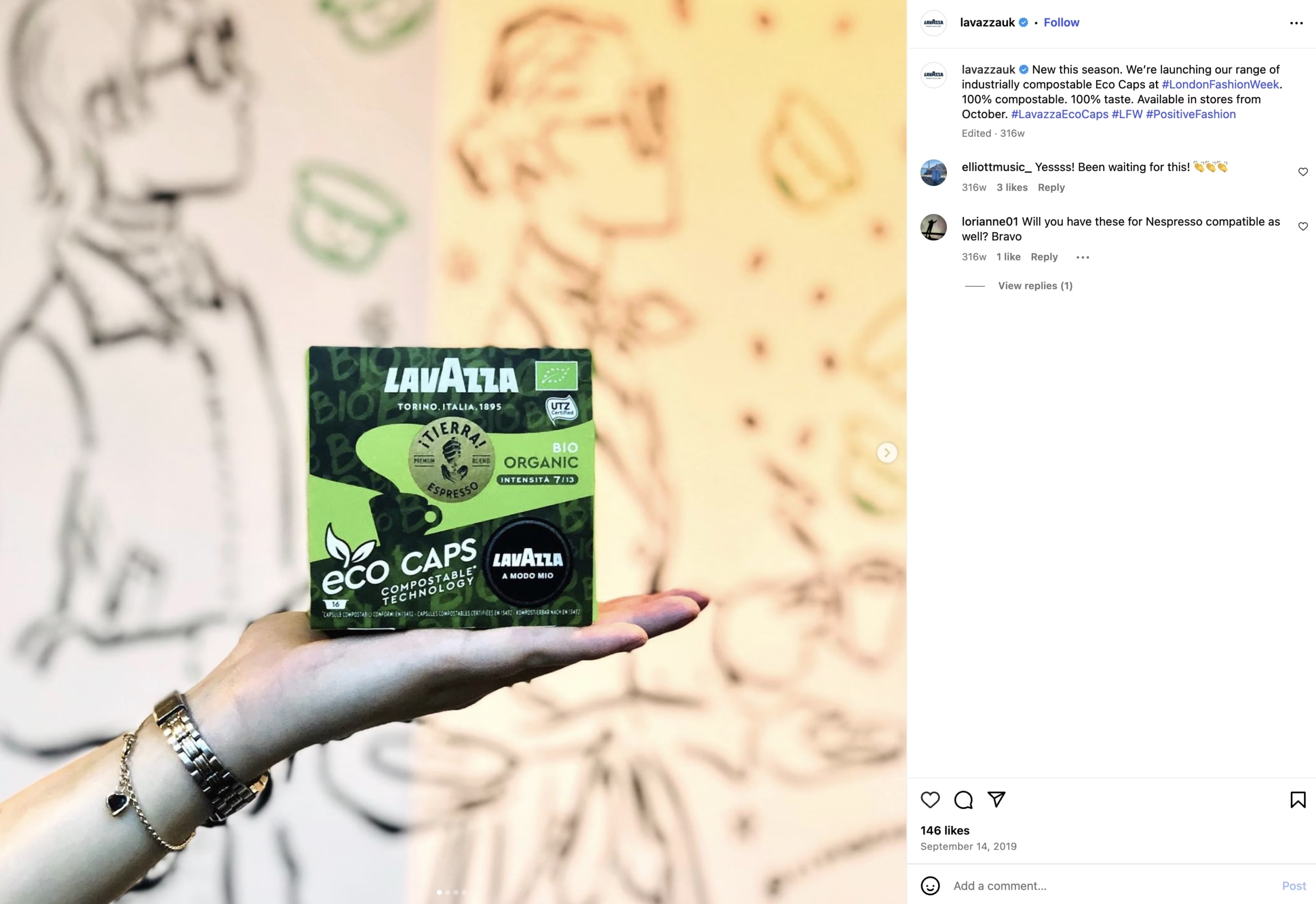
Of the two labels – look for ‘compostable’ rather than ‘biodegradable’. Backed by a certification like OK Compost and with details on how to do the actual composting bit.
The single-feature focus
Companies often draw attention to a minor positive change while ignoring their overwhelming impact. For example, Coca Cola has launched scores of campaigns to palliate plastic waste, such as collecting “ocean-bound plastic”, while simultaneously being ranked as one of the world’s worst plastic polluters; still producing billions of new plastic bottles every year. The small, performative, offsetting effort distracts from the core problem of excessive single-use plastic production.
Look beyond the small print: is the company committed to reducing the root issues, like absolute plastic volume, or are they just making their existing waste streams sound better?
Mistreated staff = mistreated planet
Greenwashing focuses on environmental deception but sustainability is about people too. Some places may market themselves as eco-conscious while underpaying waiters, ignoring worker safety, or generally providing nasty conditions. The paradox of the planet being respected while people are being pummelled, is highly unlikely. The two things are connected.
Check how workers are being treated and if it’s badly, or tyrannically, in a place that’s posturing as ‘green’, then that’s giving something away.
So, what to look for in an authentically sustainable company in this sector? Well, let’s take a look at an award-winning one called The Free Company, in Scotland, near Edinburgh.
Case Study: The Free Company in Edinburgh, Scotland
The Free Company is an award-winning regenerative organic farm and seasonal restaurant near Balerno, just outside Edinburgh. It won the prestigious Sustainability Award at the National Restaurant Awards 2025, because the team’s purpose is the source of the way the business works, not just its marketing. They represent a model of “genuine regenerative hospitality” where the farm and restaurant operate as a closed-loop system.
Here’s a bit more about how The Free Company demonstrates sincere sustainability that counters a few of the common greenwashing red flags we covered earlier.
1. Substance over style: a certified approach
The Free Company’s aesthetic is pretty stunning to behold – we’ve marvelled at the central dining room twice now – but it’s also a reflection of its substance. In contrast to the “eco-style, insipid reality” red flag,
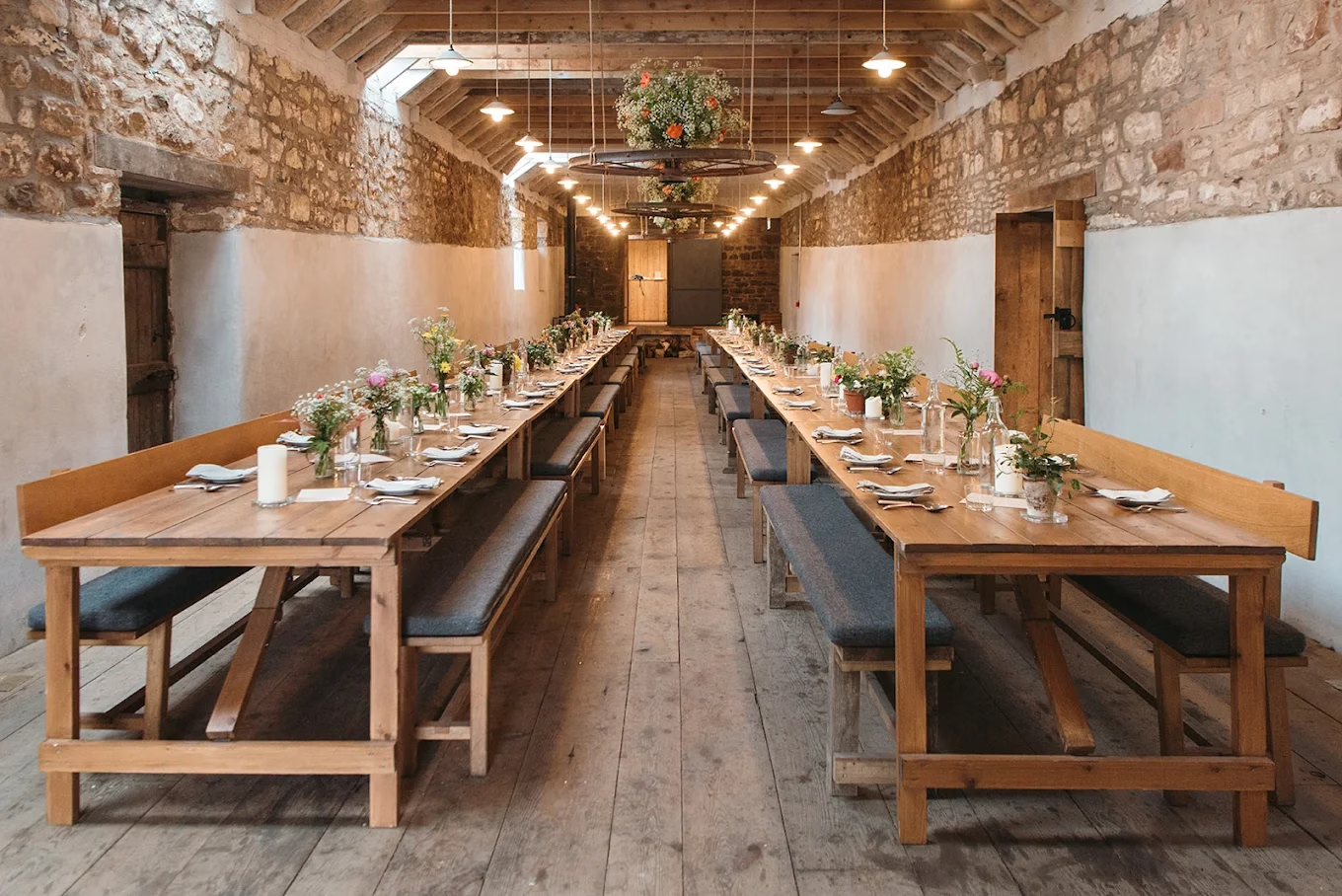
- Regenerative farming: Their practice is focused on building soil health, boosting biodiversity, and “giving back more than we take.” They use organic, no-dig methods in their market garden and raise native breeds of livestock that cycle nutrients through the land.
- Certifications and certifiable claims: They are a Soil Association certified organic farm (achieved in 2023), providing a renowned third-party validation. ‘Farm fresh’, this is not.
- Seasonal ingredients: Their menu changes daily based on what is ready to harvest from their own fields, forming the shortest possible supply chain.
2. True circularity: beyond single-feature focus
While many firms magnify one effort that’s misleading, The Free Company’s operation is designed for circularity, countering the “single-feature focus” red flag.
- On-site butchery: They process their livestock on the farm, guaranteeing full traceability from field to fork and that nothing goes to waste by taking advantage of every part of the animal.
- Waste as a resource: They close the loop on waste by composting spent coffee grounds for seed compost and using them for kvass.
- Resourceful construction: Even their building projects are circular. A new restaurant extension was built using wind-felled timber milled on-site and insulated with their own sheep’s wool, obviating any dodgy external supply chains. When it comes to tipples, they make their own cider from donated apples from a neighbour’s disused orchard.
3. Ethical Employment: people and planet are connected
The Free Company actively addresses the “mistreated staff = mistreated planet” red flag by creating community and ethical employment.
- Fair Wages and development: They create year-round, rural jobs and pay all staff at least the Real Living Wage, offering a stable alternative to seasonal or insecure work. They also provide opportunities for cross-training, mentoring, and funded professional development.
- Community hub: The farm steps-up to be more than just a restaurant; it’s a local food hub, education centre, and community resource. They host regular open days, guided walks, and school visits to share forgotten rural knowledge.
By doing all of this, The Free Company sets a benchmark for what authentic, integrated sustainability in the food industry looks like, which is why it’s winning awards and attracting people to its lovely central dining space. Despite being in the middle of nowhere, the last time we were there the place was full of contented diners from all over the world and there’s a good reason for that.
That’s all for now. Look out for greenwashing because there’s a lot of it about and we hope we’ve helped you to spot it. Everyone needs to eat, after all.
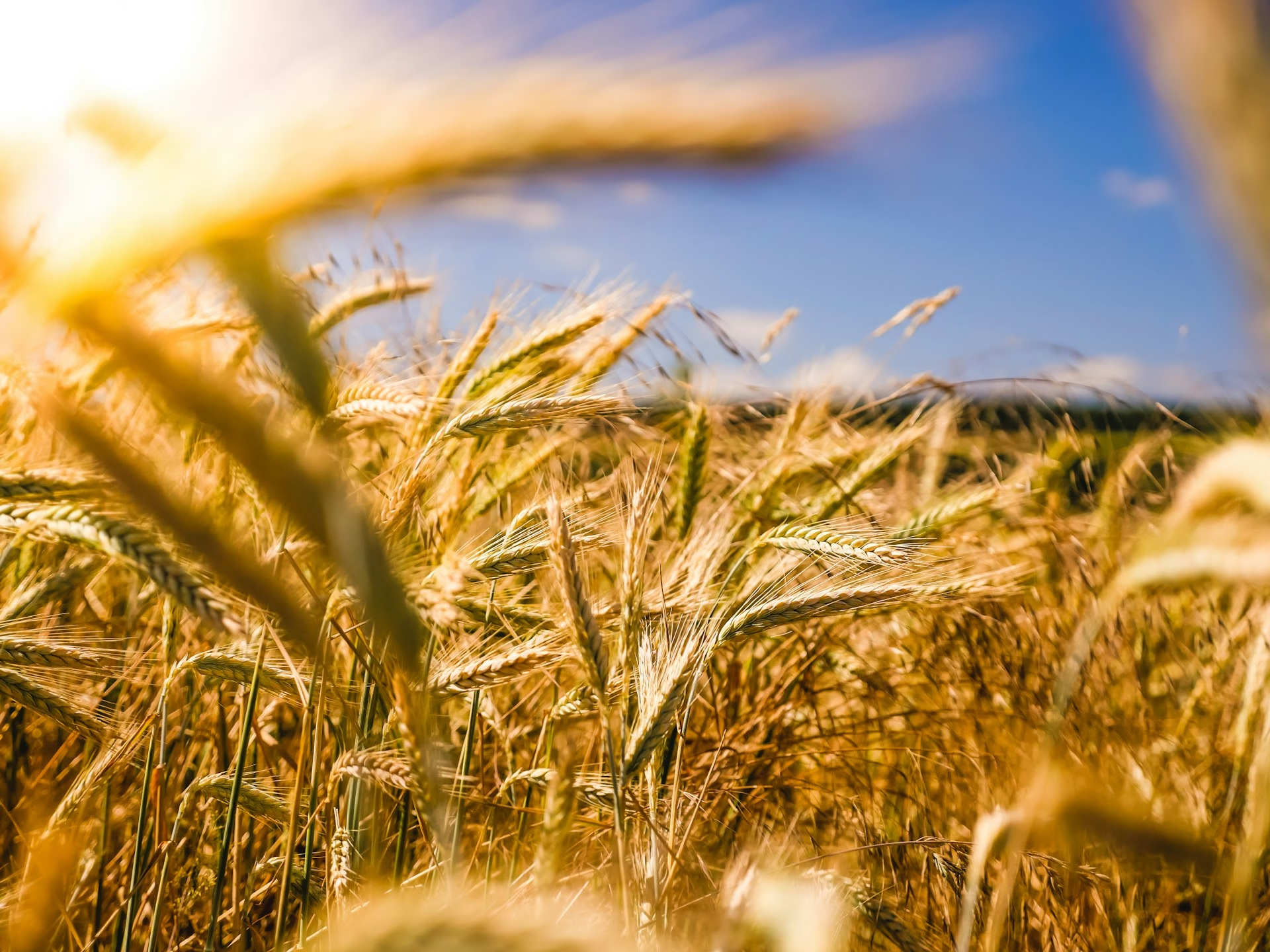


Leave a Reply